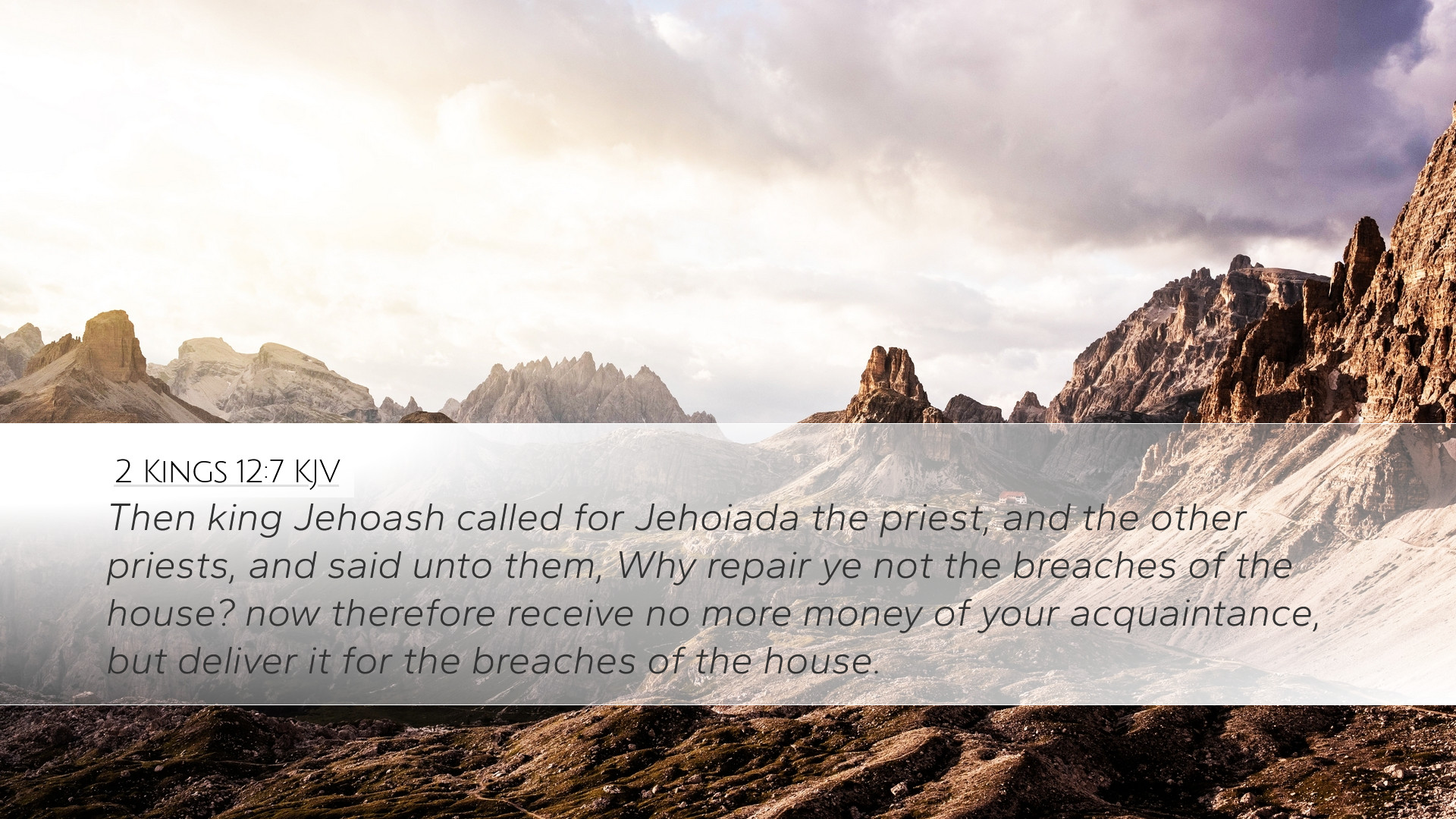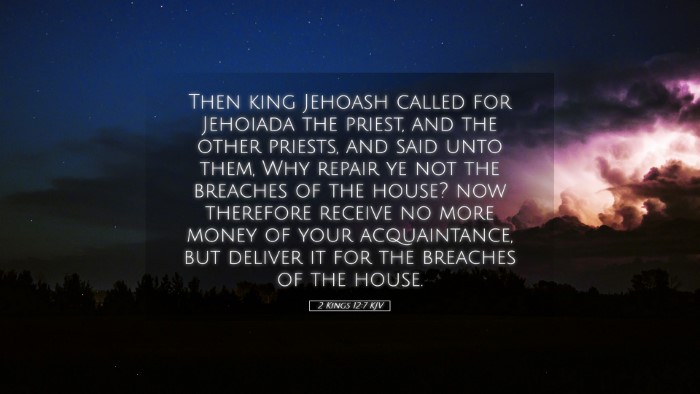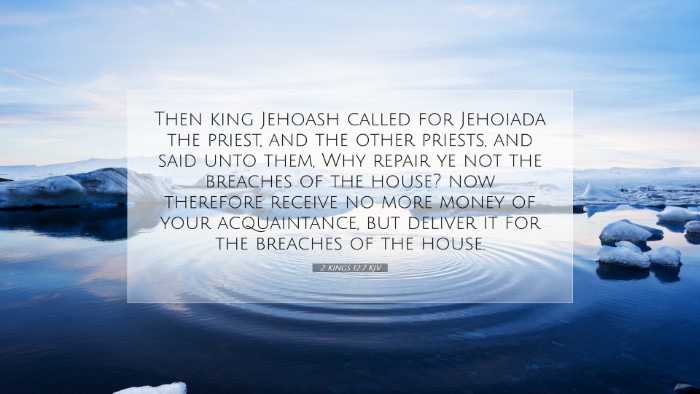Old Testament
Genesis Exodus Leviticus Numbers Deuteronomy Joshua Judges Ruth 1 Samuel 2 Samuel 1 Kings 2 Kings 1 Chronicles 2 Chronicles Ezra Nehemiah Esther Job Psalms Proverbs Ecclesiastes Song of Solomon Isaiah Jeremiah Lamentations Ezekiel Daniel Hosea Joel Amos Obadiah Jonah Micah Nahum Habakkuk Zephaniah Haggai Zechariah Malachi2 Kings 12:7
2 Kings 12:7 KJV
Then king Jehoash called for Jehoiada the priest, and the other priests, and said unto them, Why repair ye not the breaches of the house? now therefore receive no more money of your acquaintance, but deliver it for the breaches of the house.
2 Kings 12:7 Bible Commentary
Commentary on 2 Kings 12:7
2 Kings 12:7 states: “Then Jehoiada the priest took a chest and bored a hole in the lid of it, and set it beside the altar on the right side as one cometh into the house of the LORD: and the priests that kept the door put therein all the money that was brought into the house of the LORD.”
Context and Background
This verse occurs within the broader narrative of King Joash’s reign and reflects the spiritual restoration of Judah. Following a period of decline and idol worship, Joash, upon ascending the throne, sought to restore the worship of Yahweh, signifying a pivotal moment for the nation. Jehoiada, the high priest, plays a crucial role in guiding this restoration.
Insights from Commentators
-
Matthew Henry:
Henry emphasizes the importance of restoring the temple's worship and upkeep. He notes that Jehoiada’s initiative to collect funds for the temple repairs demonstrates the seriousness with which the leaders regarded the worship of God. The chest with a hole represents both practicality and transparency in collecting offerings, signifying that the funds were for a righteous cause.
-
Albert Barnes:
Barnes observes the actions of Jehoiada in creating a systematic method for collecting money as a reflection of good governance in the religious sphere. He points out that this collection system was essential in a time when Israel frequently struggled with financial mismanagement. The priest's role in collecting offerings highlights the intersection of civil and ecclesiastical responsibilities.
-
Adam Clarke:
Clarke elaborates on the symbolism of the chest itself. The act of boring a hole in the lid signifies the open-handedness of giving. Clarke also notes that the placement of the chest next to the altar is significant, as it symbolizes the direct connection between monetary offerings and spiritual sacrifice, emphasizing that all gifts given to God should be done so with sincere hearts.
Theological Implications
The actions described in this verse provide several theological insights that are relevant to both worship and community life within the faith. It highlights:
-
The Role of Leadership:
Leaders in the church are called to guide their congregations in spiritual and practical matters. Jehoiada serves as an exemplary model of leadership focused on God's glory and community welfare.
-
Community Participation:
The collective effort in providing for the needs of the temple emphasizes the need for communal participation in worship and ministry. It highlights a shared responsibility for the maintenance of God's house.
-
Financial Stewardship:
The emphasis on proper collection and stewardship of resources demonstrates that financial matters are significant in God’s kingdom. Resources should be managed wisely and devoted to God’s work.
Practical Applications
For pastors and church leaders, the passage encourages the establishment of transparent and responsible financial practices. Here are some practical applications:
- Encourage open discussions about giving within the church community, fostering a culture of generosity.
- Create systems for collecting offerings that allow for accountability and visibility.
- Engage the congregation in understanding the importance of funding the church's mission as an act of worship.
Conclusion
In 2 Kings 12:7, we discover significant insights into the responsibilities of leaders, the importance of community, and the notions of stewardship and worship. As the church today seeks to maintain and manage its spiritual house, the lessons drawn from the actions of Jehoiada and the context of Joash's reign continue to be pertinent. Such passages urge us to reflect on our own commitments to the ways we worship, support, and uphold the communal life of the church.


